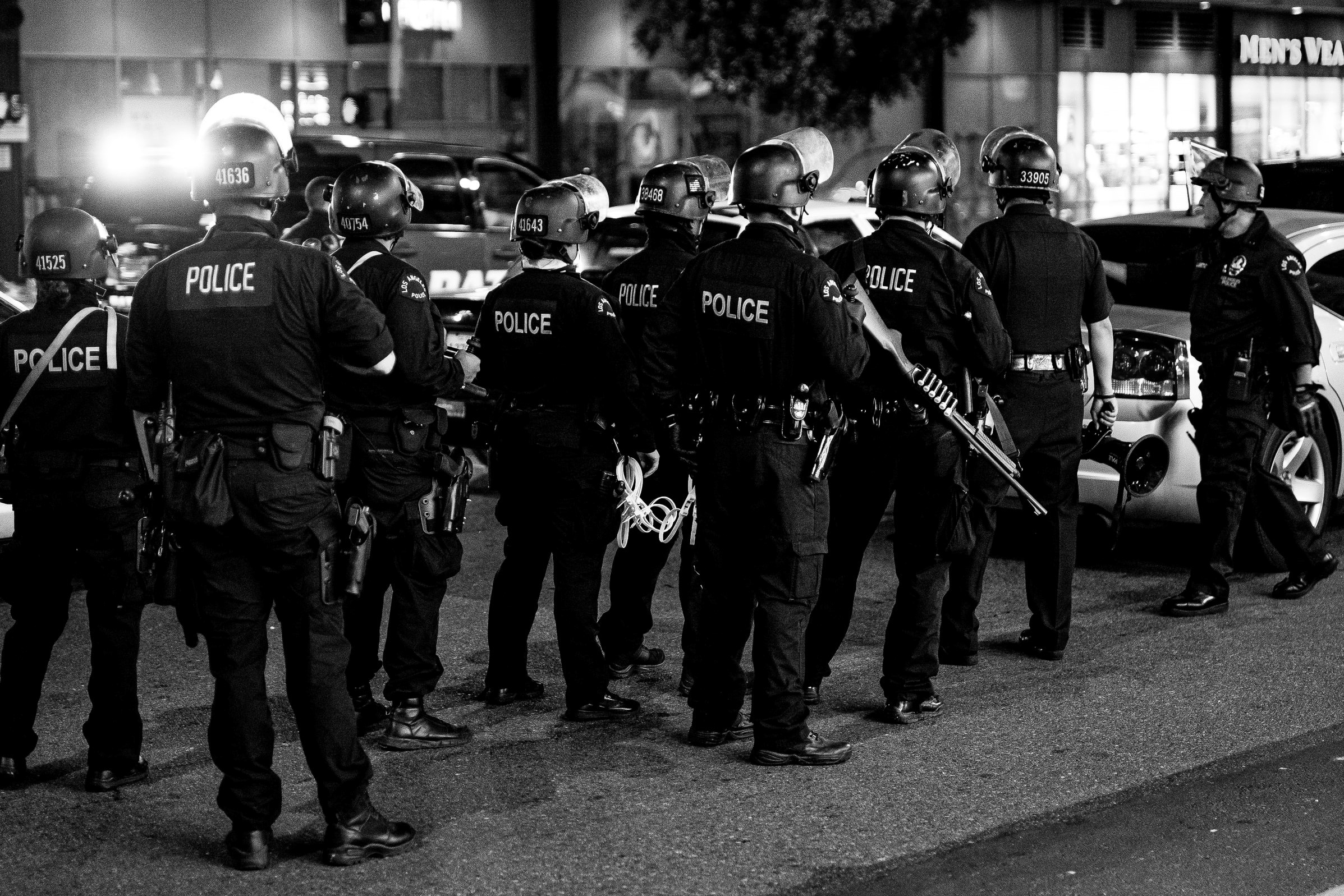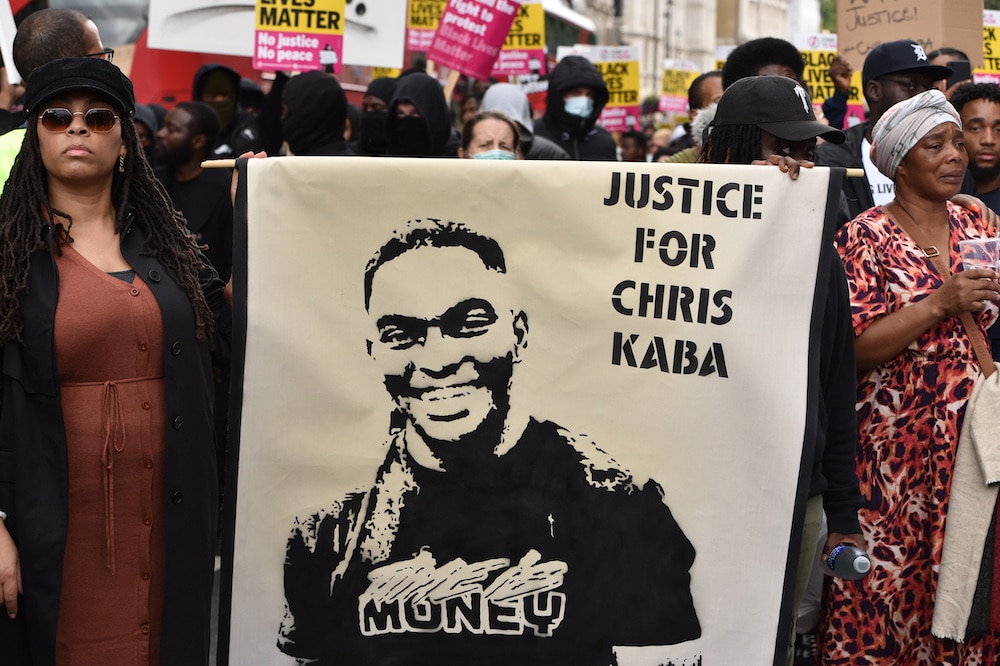Campaigners' Deep Concern Over Police Accountability Review

Table of Contents
Insufficient Investigative Power of Oversight Bodies
Current police oversight bodies often lack the necessary authority and resources to effectively investigate and hold police officers accountable for misconduct. Their limited investigative powers hinder their ability to uncover the truth and deliver justice. This impacts the effectiveness of police accountability mechanisms significantly.
- Lack of access to crucial evidence: Oversight bodies frequently face obstacles in accessing essential evidence, including police body camera footage, internal affairs reports, and witness statements. This lack of access severely limits their ability to conduct thorough investigations.
- Insufficient subpoena power to compel testimony: The inability to compel testimony from police officers and other relevant parties hampers investigations, preventing the gathering of critical information necessary to determine culpability.
- Inadequate resources and funding for thorough investigations: Many oversight bodies operate with limited budgets and staffing, hindering their capacity to conduct complex investigations, especially those involving multiple officers or agencies. This lack of resources directly impacts the quality and depth of police misconduct investigations.
- Bureaucratic delays and slow processing of complaints: Lengthy bureaucratic processes and slow processing of complaints often lead to delays in investigations, allowing time for evidence to disappear or witnesses' memories to fade. This undermines the credibility and effectiveness of independent review processes.
These limitations significantly weaken police oversight and accountability mechanisms, hindering the pursuit of justice and leaving victims and communities feeling unheard and unprotected.
Lack of Transparency and Public Access to Information
A significant concern among campaigners is the lack of transparency surrounding police misconduct investigations. The limited access to information prevents public scrutiny and undermines trust in law enforcement.
- Restricted access to investigative reports: The public, and often even victims' families, are frequently denied access to complete investigative reports, shielding police misconduct from public view and hindering accountability.
- Lack of public hearings or forums: The absence of public hearings or forums to discuss police misconduct cases further limits public engagement and participation in the accountability process, reducing police transparency.
- Insufficient information sharing with victims and their families: Victims and their families often lack access to critical information about the investigation's progress and outcomes, leaving them feeling marginalized and disempowered. This lack of communication erodes public trust.
- Data limitations preventing effective tracking of police misconduct trends: Inadequate data collection and analysis prevent the identification of patterns and trends in police misconduct, hindering effective reform efforts. Improved police accountability data is crucial for informed decision-making.
This lack of transparency prevents effective monitoring of police behavior and fuels public distrust. Improved police transparency is essential for restoring public confidence.
Inadequate Sanctions and Punishments for Misconduct
Even when police misconduct is documented, the current system often fails to impose meaningful sanctions. The consequences for misconduct are frequently too lenient, failing to serve as a deterrent.
- Lenient penalties for serious offenses: Serious offenses like excessive force or racial profiling often result in minimal or no consequences for the officers involved, sending a message that such behavior is tolerated. This weakens police discipline.
- Lack of consistent application of disciplinary measures: The inconsistent application of disciplinary measures across different police departments and jurisdictions undermines fairness and accountability.
- Insufficient deterrents for future misconduct: Weak sanctions fail to deter future misconduct, perpetuating a cycle of impunity and undermining public trust in law enforcement.
- Limited consequences for departments failing to address misconduct: Police departments often lack sufficient incentives or consequences for failing to adequately address misconduct within their ranks, leading to a culture of cover-ups and a lack of accountability.
Strengthened police discipline and sanctions for misconduct are vital for effective police accountability measures.
The Impact of Systemic Racism and Bias on Accountability
Systemic racism and bias significantly impact the police accountability process, resulting in disproportionate targeting of minority communities and biased investigations.
- Disproportionate targeting of minority communities: Minority communities are disproportionately targeted by police, leading to higher rates of complaints and arrests, often without just cause.
- Bias in investigations and disciplinary actions: Investigations and disciplinary actions are often biased against minority officers and those who file complaints against officers.
- Lack of representation of minority groups in oversight bodies: The lack of diverse representation in oversight bodies can lead to a lack of understanding of the unique experiences and challenges faced by minority communities.
- Need for culturally competent investigation processes: Culturally competent investigation processes are needed to ensure fair and equitable treatment for all involved.
Addressing systemic racism in policing is crucial for ensuring equitable policing and improving police accountability.
Proposed Solutions and Recommendations for Reform
Significant reforms are needed to improve police accountability. These include:
- Increased funding and resources for oversight bodies: Adequate funding is crucial to ensure that oversight bodies have the resources to conduct thorough and effective investigations.
- Enhanced investigative powers for oversight agencies: Granting oversight agencies stronger subpoena power and access to evidence is critical for effective investigations.
- Strengthened transparency measures and public access to information: Increased transparency, including public access to investigative reports and data, is essential for building public trust.
- Independent investigations into police misconduct: Independent investigations ensure impartiality and prevent conflicts of interest.
- More robust disciplinary measures and consequences for misconduct: Stronger sanctions and consistent application of disciplinary measures are crucial deterrents.
- Community oversight and engagement: Involving communities in the oversight process can increase transparency and build trust.
These police reform measures are necessary for improving police accountability.
Conclusion
Campaigners' deep concern over the police accountability review process is justified. The insufficient investigative powers, lack of transparency, inadequate sanctions, and the impact of systemic racism all severely undermine the ability to hold law enforcement accountable for their actions. The consequences are a continuing erosion of public trust and a failure to address pervasive patterns of misconduct. Substantial reform is urgently needed to restore faith in law enforcement and ensure that police officers are held accountable for their actions. Demand a thorough and transparent review of police accountability mechanisms. Join the movement for meaningful police reform and help us strengthen police accountability and achieve real and lasting improvements in police accountability.

Featured Posts
-
 France Vs Italy Six Nations Victory Sets Stage For Ireland Showdown
May 01, 2025
France Vs Italy Six Nations Victory Sets Stage For Ireland Showdown
May 01, 2025 -
 Splice A Filmmakers Perspective On Cay Fest
May 01, 2025
Splice A Filmmakers Perspective On Cay Fest
May 01, 2025 -
 Spds Unexpected Shift Analysis Of Their Role In The New German Government
May 01, 2025
Spds Unexpected Shift Analysis Of Their Role In The New German Government
May 01, 2025 -
 Clase Nacional De Boxeo 2025 Sheinbaum Y Cesar Figuras Principales
May 01, 2025
Clase Nacional De Boxeo 2025 Sheinbaum Y Cesar Figuras Principales
May 01, 2025 -
 Independent Office For Police Conduct Challenges Bbcs Chris Kaba Panorama
May 01, 2025
Independent Office For Police Conduct Challenges Bbcs Chris Kaba Panorama
May 01, 2025
